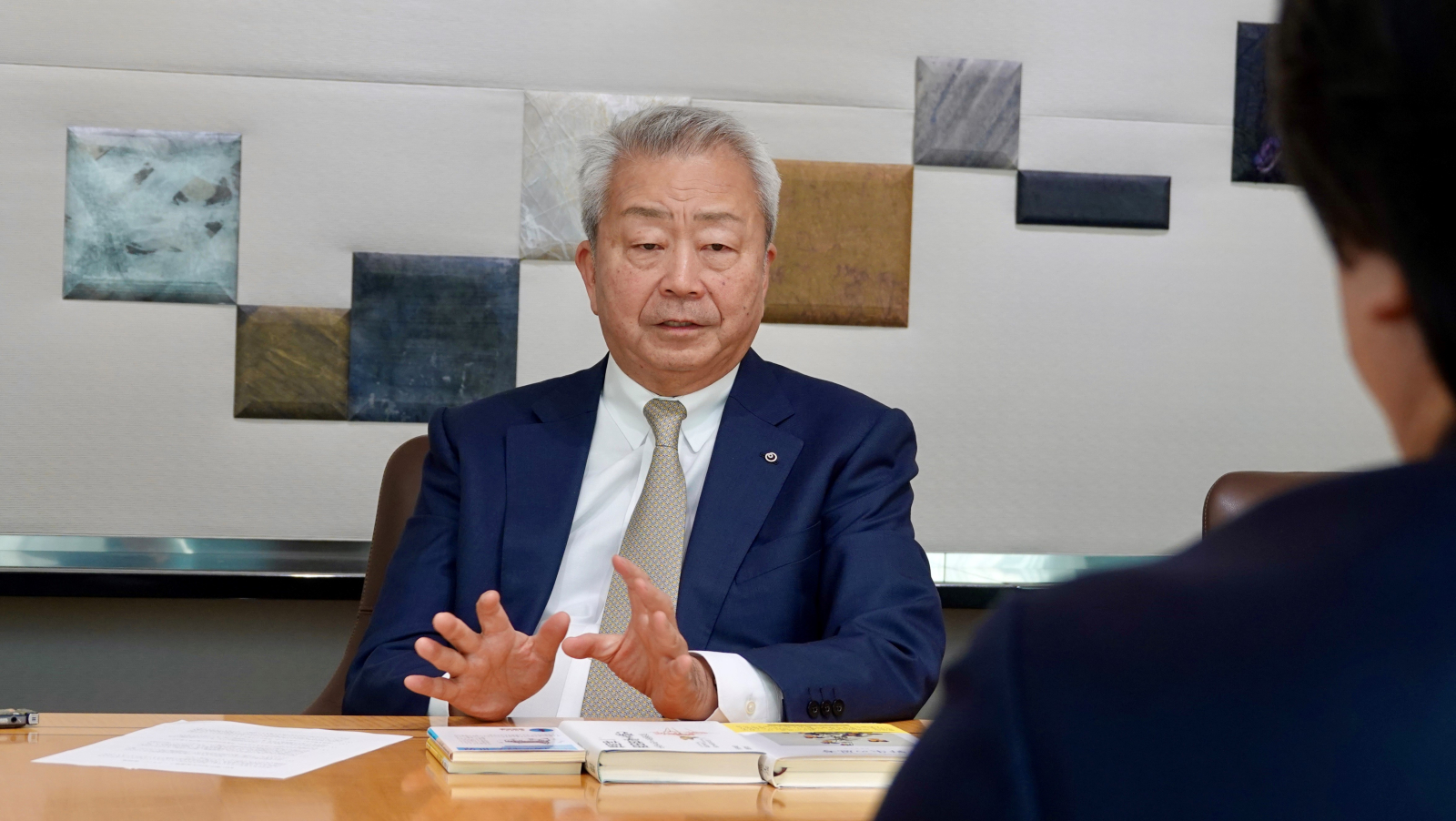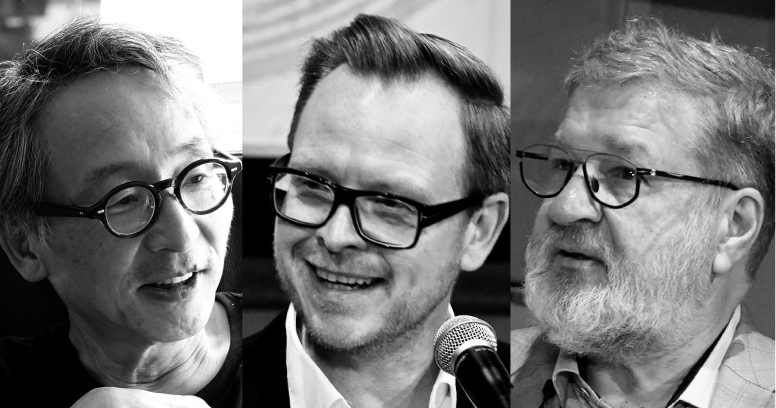【Relay Interview 2】 Jun Sawada, Chairman of NTT:Chapter 1 Science and AI are changing our views on life and death—a sense of crisis is driving the creation of a new philosophy

The Institute is interviewing its key members in a relay format about what led them to begin this initiative and their thoughts on its future endeavors. Our second interviewee is Jun Sawada, Executive Chairman of NTT and Co-Chairperson of the Institute.
Details
Interviewer: Could you tell us what led you to conceive the idea of establishing the Kyoto Institute of Philosophy?
Sawada: In the 2010s, there was active discussion surrounding iPS cells (induced pluripotent stem cells). iPS cells can replace tissues lost through illness or injury with new cells, and there were great expectations for their application in regenerative medicine. At the same time, what I foresaw was that human life expectancy would change. Then, in the 2018 Japanese translation of "Homo Deus: A Brief History of Tomorrow," historian Yuval Noah Harari made these predictions about the near future:
"In the 21st century, humanity is likely to make a serious effort to achieve immortality."
"In the 21st century, Dataism may shift the worldview from human-centric to data-centric, potentially displacing humans from their central role."
I believe that organisms, including humans, cannot contribute to Earth's ecosystem unless they die, so I think the cycle of life and death must be preserved. However, if, as Harari suggests, the advancement of life sciences and artificial intelligence leads to the birth of immortal humans, we must begin thinking about things from the premise that "humans do not die." And AI does not experience "death" either. When the iPhone appeared, I had an intuition that many things might change fundamentally, but after reading Harari's book, I was tormented by an even stronger sense of crisis.
The next-generation communication infrastructure "IOWN" (Innovative Optical and Wireless Network) that NTT announced in 2019 is an infrastructure that will accelerate the evolution of AI. As a telecommunications provider, I thought that along with IOWN's development, we need sociological insights from the demand side of society. That is, in other words, we need philosophy.
However, I felt that Western philosophy alone wouldn't be sufficient. After consideration, I arrived at the philosophy of Kitarō Nishida of the Kyoto School. Nishida’s philosophy is unique within Japanese philosophy and is recognized worldwide. So I asked Dr. Juichi Yamagiwa, who was then President of Kyoto University, "Is there anyone who follows in Nishida's philosophical tradition?" That's how I was introduced to Professor Yasuo Deguchi.
When I first met Professor Deguchi, I talked about IOWN. He immediately responded, "That's a new social infrastructure. We need a new philosophy for it." I thought that was a powerful insight.
Interviewer: Subsequently, you proposed establishing the Institute to Professor Deguchi, and "A new technology requires a new philosophy" became one of the institute's shared understandings. Could you elaborate on your thought process that led to the conclusion that "we need a new philosophy"?
Sawada: Actually, when Professor Deguchi and I visited Estonia in September 2023, someone we met there made a similar observation, saying "The idea that a new technology requires a new philosophy seems very clear, but we haven't articulated why." (laughs)
Let me elaborate. The world faces many social challenges, like climate change,inequality, and division. For example, if we position overcoming these as our goal, what do you think is needed to solve these major social challenges that stand as barriers? I believe it's about changing people's behavior and social norms. However, behavior and rules don't change easily. That's because there is not progress with the reform of consciousness. What's the root cause of our inability to reform consciousness? In my view, the biggest factor is that values aren't changing.
In fact, I've had this kind of discussion with Professor Deguchi and other Institute members. Professor Deguchi said at that time, "What underlies values is our view of human beings." The view of human beings—that's precisely philosophy, isn't it? In other words, when we dig deep into methods for solving social issues, we arrive at philosophy. To express this in Professor Deguchi's words, as a dynamic image, it's like diving from social issues down to philosophy and then resurfacing to the goal. This back-and-forth movement between diving and surfacing requires tremendous energy and intensity. That's why I believe we first need to create momentum.
Returning to the earlier discussion of "a new technology needs a new philosophy," when NTT undertook the development of IOWN, it was because centralized system infrastructure could no longer cope, and as we dove deeper and deeper into the issues, we could see the need for a "new philosophy."
Interviewer: There are numerous initiatives for industry-academia collaboration both domestically and internationally, but what sets the Kyoto Institute of Philosophy apart?
Sawada: I believe this is a rather unique collaboration. From the perspective of the industrial sector, philosophy is not profitable. Philosophy is often perceived as being antithetical to corporate endeavors due to its lack of productivity. It is not uncommon to hear remarks such as "That kind of thing is useless." (laughs)
However, the executives from companies like Hakuhodo, Hitachi, and Yomiuri Shimbun, who have joined us at the Kyoto Institute of Philosophy, interpret corporate activities and capitalism in a broader sense. They have moved beyond the notion of relentless gain and avaricious profit by recognizing that such an approach is inadequate.
In this context, concepts like stakeholder theory and ethical capitalism have emerged. However, before discussing systems and economics, without a philosophy that contemplates "how to consider the human perspective," society will not change, as previously mentioned. This alignment of consciousness forms the foundation for the establishment of our institute, and I believe it is what gives us uniqueness.
Others



